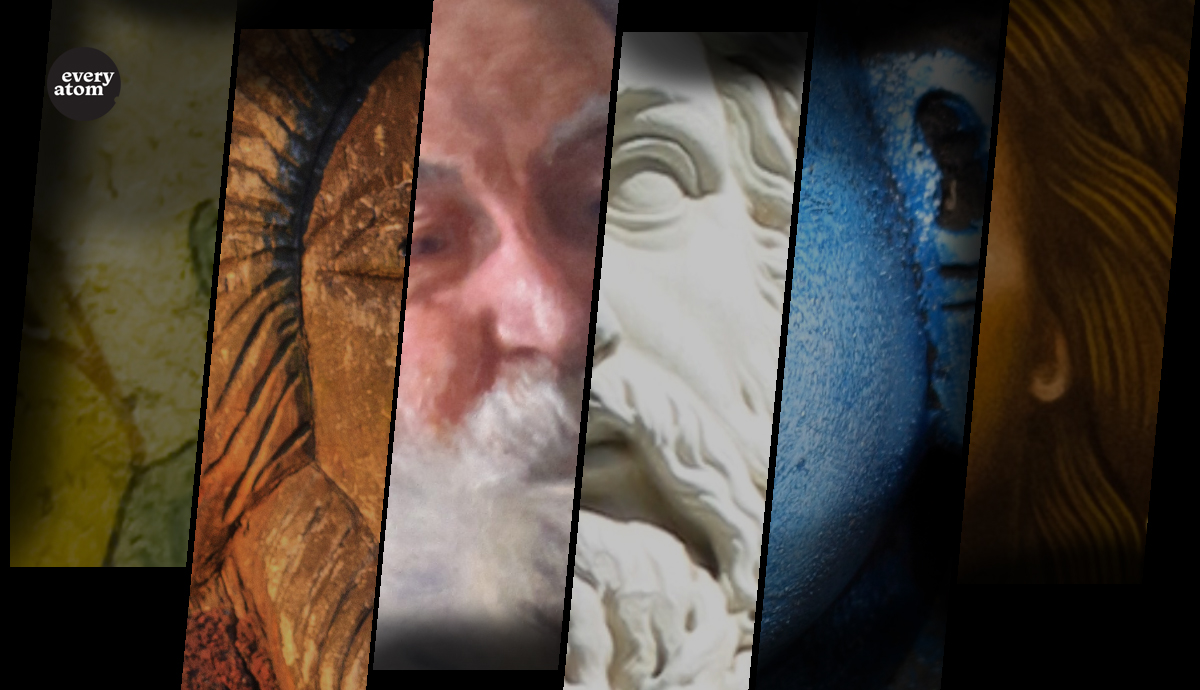Every Atom | No. 33
Introduction to Every Atom by project curator Brian Clements
I’m embarrassed to say that I had not read a word of Walt Whitman before the age of thirty. But when, finally, I read the 1855 section that would become “Song of Myself,” I was shocked, to put it mildly. I don’t know what I had expected: the exaltation of nature, perhaps; a free-spirited, if vague, proto-hippiedom—all the things the Texas public school system had implied Whitman was, without encouraging my teachers to assign him. What I found instead were words that were electric, not to say hair-raising. Here is the virtue of “Song of Myself,” the virtue of all real poetry: one cannot read it complacently. Whitman simply will not allow the reader to be lulled into anything. “You shall no longer take things at second or third hand,” he writes; instead, you will be startled by directness. Hence the poet’s frankness about sex, and his many synonyms for semen. There are quite a few jarring and poetic instances in the 1855 Leaves of Grass—from “fatherstuff” and “quivering jelly of love,” to “white-blow,” “delirious juice,” and Whitman’s infamously “limitless limpid jets of love hot and enormous”—but perhaps none is more direct and more startling than here, where the poet values “a spirt of [his] own seminal wet” above all religion, and even above the Christian God. (After the Civil War, Whitman would do something he almost never did, and delete this line.) Even today, more than a century and a half after they were written, such high-voltage words still have the power to shock the reader awake, alert to Whitman's broader purpose. I defy you to read them aloud unblushingly and with a straight face, alone or in company. Go ahead, try. Now ask yourself: How is it that these words abash? What is their force? Whitman describes a substance the Romantics would have thought horribly unpoetic, unsublime—something common and earthly, like manure, dung beetles, the scent of an armpit—but something without which there would be no generation, no growth, no humanity. No poetry. He teaches us what we are still learning today: that the American poet, the poet of democracy, names everything. It is one of the unique lessons of Leaves of Grass. Another being that it's better to discover a kindred soul late, than not at all. Whitman knew the feeling well; in a later edition he writes, to “you, whoever you are”: “O I have been dilatory and dumb,/ I should have made my way straight to you long ago,/ I should have blabbed nothing but you, I should have chanted nothing but you....”
Recommended
Nor’easter
Post-Op Appointment With My Father
Cedar Valley Youth Poet Laureate | Fall 2024 Workshop







